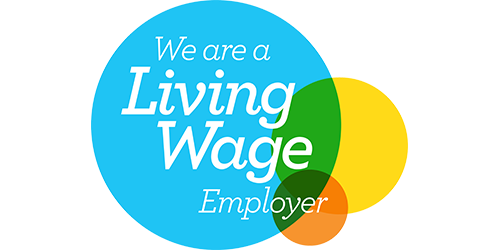This article was first published in Stir Magazine, Spring 2019. To support our journalism, purchase this issue or an annual subscription.
In 2016, 20 book clubs were formed all across Philadelphia, inspired by the historical examples of co-operative study circles in Jessica Gordon Nembhard’s Collective Courage. With 200 residents coming together, the plan was to study how to create twenty new co-operative businesses in the city. The Philadelphia Area Cooperative Association (PACA), a nonprofit co-operative of co-operatives, was awarded a $146,000 grant from the Knight Foundation to implement the initiative – 20 study groups, 20 Cooperative Businesses – in the city’s most economically marginalised black and brown communities.
PACA initially led community members to survey other local residents to identify their economic needs before starting a six-month programme of group study. Community members identified several co-operative opportunities, including community gardens, marketing, housing, construction, Latinx day labourers, and a sex workers’ credit union.
Throughout the programme, book clubs met twice each month at various community spaces, churches, and nonprofit centres, with grant funding supporting childcare, food, and venue costs. The groups discussed co-operative principles, economic and social benefits, legal structures, and conflict resolution. The book clubs were offered study visits to other co-operatives, and also participated in racial and gender anti-discrimination role play training, with facilitators from Anti- Oppression Resource & Training Alliance (AORTA), a worker co-operative that offers an intersectional approach to social change.
“At the end of the six months, nearly half of the 20 book clubs decided to continue the process”, PACA executive director Jamila Medley said, “while other groups decided to keeping studying, and a few decided to disband.” The book clubs that decided to continue underwent intensive training to prepare to open a co-operative, including analysing competitors, developing a budget, and reading a profit and loss statement. And many book club members went on to participate in other community projects. In fact, nearly half – five of PACA’s 11 current board members – were selected from the 20-20 clubs.

“More co-ops are in the pipeline ”, Medley said. One surprise outcome was an unplanned producer co-operative developing with farmers to grow heirloom corn in Lancaster, Pennsylvania. A man whose wife opted not to set up her own restaurant as she wanted to protect her family recipes, used what he learned to initiate another co-op.
“One of the deeper elements is in the practice of how to be together, even for those groups who didn’t form co-operatives ”, Medley said. “They are certainly carrying on the principles of inclusive and participatory meetings.”
She also said that those who didn’t think of themselves as leaders who are now running organisations; and writers, photographers, and other people who struggled to make a living working alone are now working together in a media co-operative. “The change is real, and it’s really beautiful ”, she said. Medley believes education at the start was critical to the later success of the co-operatives.
Older groups like AORTA have continued their education because of the nature of their work. “In order to make informed decisions, it's crucial that we all be educated about things like financial management and laws that impact our business”, said Neily Jennings, an AORTA worker-owner. “At a governance level, we all need to be clear on our structure and democratic decision-making process so that we can effectively participate in managing our business. And as we see our business as part of building social movements, we also engage in regular education and resource sharing to develop a shared analysis of complex socio-political issues.”
AORTA has a year-long training process for their new members. This is quite different from some groups that often think it is enough to have the word “co-op” in their business names, yet haven’t formed study circles, or planned education, or studied on their own. They fail to understand the ways co-operatives are different, because they don’t even know the International Co-operative Alliance principles.
Cheyenna Weber of Co-operative Economics Alliance of New York City, which offers trainings to co-operatives, suggests educational solutions for businesses or groups looking to start a co-operative: online discussions, reading groups or book talks, or dedicated time in an annual meeting to reflect on a principle and identify how the co-op is or is not meeting it. Weber said that this could even be practiced co-op wide, along with other ideas, as part of a regular “co-operative principle of the month” education campaign to help busy members and leaders find ways to learn and apply the principles as they continue to operate.
Many coop-in-name businesses “often struggle to grasp the core distinction of co-ops”, she said, “from simply a friendlier, more socially responsible small business.” ∞
Ajowa Nzinga Ifateyo is a co-editor of Grassroots Economic Organizing, and has written for In These Times, the Miami Herald and The Los Angeles Times. She is a co-founder of the Ella Jo Baker Intentional Community Cooperative in Washington, D.C., and was a founding board member of the U.S. Federation of Worker Cooperatives.







